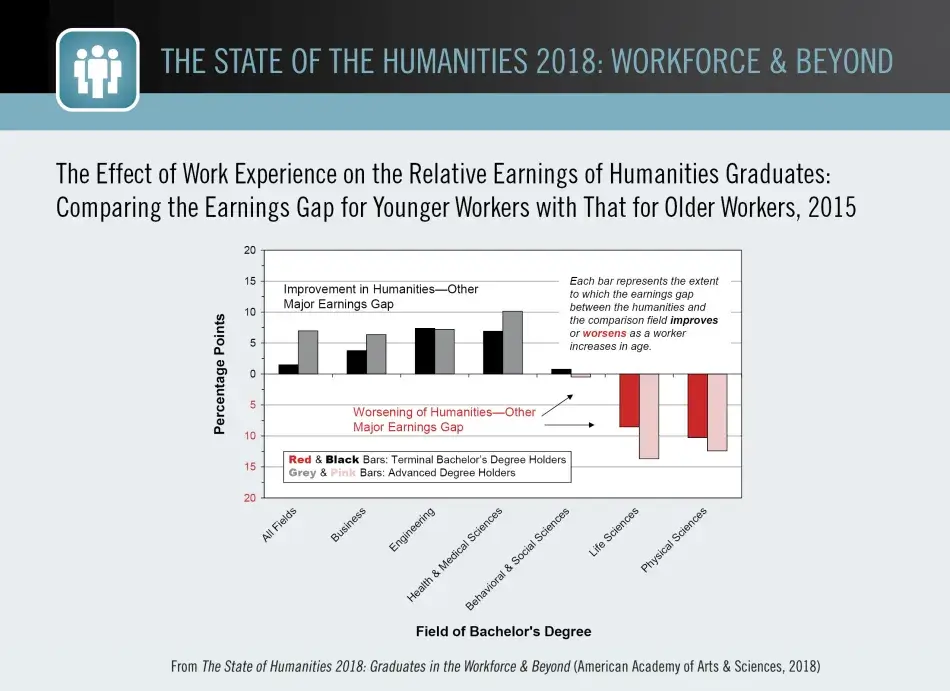The State of the Humanities 2018: Graduates in the Workforce & Beyond
The Effect of Work Experience on the Relative Earnings of Humanities Graduates: Comparing the Earnings Gap for Younger Workers with That for Older Workers, 2015

The gap in earnings between humanities majors and several of the higher-earning majors is less pronounced for older workers. The figure above indicates how the gap for workers ages 24 to 34 compares with that found among workers ages 35 to 54. For example, the earnings gap between humanities and business majors is two percentage points smaller for older workers with terminal bachelor’s degrees than younger workers with the same level of education. The gap is almost six-and-a-half percentage points narrower among advanced degree holders. The earnings differential between the humanities and the natural science fields, however, is larger among older workers, particularly for advanced degree holders.1